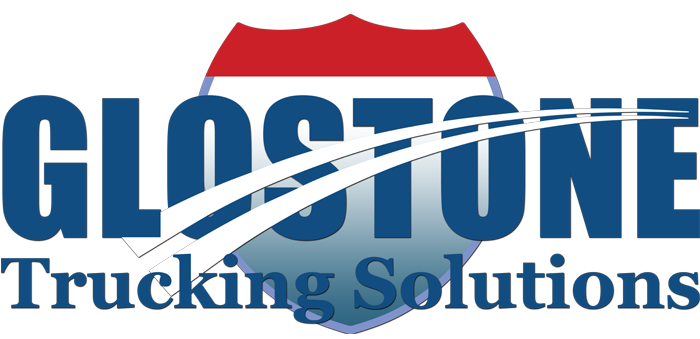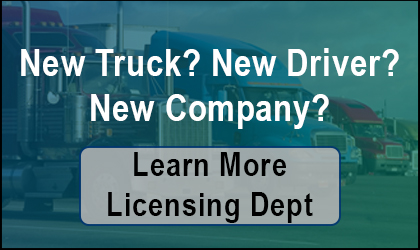Glostone Newsletter
posted in Newsletter by Brian Gray
Glostone News – October Newsletter
EOBR Compliance Questions
Electronic On-Board Recorders (EOBR’s) can be a very viable answer to the time, expense and frustration involved with being in compliance. Most EOBR systems market themselves as being compliant with the Federal Motor Carrier Safety Regulations in regards to Hours of Service and driver logs. Many also say their data can be used for International Fuel Tax Agreement (IFTA) tax reporting purposes. Before you buy, make sure you have answers to a few key questions.
If you are going to use your EOBR for Hours of Service compliance, ask your vendor “does the unit meet the new FMCSA requirements for an EOBR?.” If the answer is Yes, you may have a problem. The FMCSA is currently rewriting the EOBR requirements and have not yet released any details. They are due to come out very soon. A “yes” answer to your question may mean your vendor really doesn’t understand, from a compliance standpoint, what he’s selling. The correct answer to your question should be “the unit meets today’s requirements and as soon as the new requirements come out, any modifications necessary will be made to stay in compliance.”
If you intend to use your EOBR data for IFTA tax reporting, many more important questions must be asked. The correct answer can depend on the type of operation you run.
There is a big difference in the data needed to report IFTA taxes and the supporting data required to be maintained to prove the reporting data is correct. The data needed to report your IFTA taxes is simply the total distance in each jurisdiction of your fleet and the total fuel purchased in each jurisdiction by your fleet within a 3 month time period. Most EOBR’s can supply the distance information for the tax computation but there are some that fail when it comes to being able to supply the supporting data required for IFTA compliance. Carriers who buy EOBR’s without asking these questions may be facing some costly problems during their next IFTA audit.
– Can detailed trip reports be run by a starting and ending date for each unit?
– Will the report identify the origin and destination?
– Will the report identify the routes of travel?
– Can the beginning and ending odometer for each unit be produced for this time period?
– Will the report calculate total trip distance along with distance within each jurisdiction?
– Will this data be available for the next 4 years in case of an audit?
In an IFTA audit, the auditor must be able to verify the accuracy of the equipment in calculating distance. An answer of “Yes” to each of these questions will allow the auditor what they need for their verification. An answer of “No” to any of these questions can put your company at risk at being out of compliance and cost you money during an audit.
One other important question needs to be asked before you purchase your EOBR . “How often does the EOBR record the truck location through a GPS ping?” For a long haul operation where a truck rarely leaves the interstate, a ping rate of every 20-30 minutes may be acceptable to accurately record the trucks distance in each jurisdiction. For short haul operations where trucks spend much of their time on highways and streets, a ping rate of 1-5 minutes may be necessary to accurately record distance. Some carriers may have both long and short haul trucks. Buying an EOBR with a ping rate set up for long haul may not be correct for the short haul units.
An IFTA auditor will look at your operation, look at how often distance is recorded, and make a determination as to are you getting enough distance data to report accurately. In general, ping rates over every 15 minutes will be looked at very carefully by an auditor.
It’s important to understand the differences in EOBR compliance between the FMCSA’s Hours of Service requirements and IFTA tax reporting requirements. If you intend to use your EOBR for both of these compliance areas, asking these questions can help you make sure you have the right equipment for your operation.
2014 Licensing and Permit Renewals To Begin
Renewing registrations, licenses, tax accounts, filings, and many specialty permits is an annual headache carrier’s dread. Most 2013 renewals must take place prior to the end 2013 including:
- Oregon Truck Registrations
- IFTA Licenses
- UCR Filings
- Oregon Tax Weight Identifier Account
- New Mexico Mileage Tax Account
- And many individual Federal and State specialty permits like:
- Over Dimensional Permits
- HazMat Permits
The renewal season floods state agencies with added work. To control the workflow and provide timely service, these agencies open up the renewal process several months prior to the deadline. As the end of the year deadline looms, procrastinators are often faced with long lines and/or long waits to receive their new credentials.
In Oregon, the state has closed 3 state permit offices which will result in more renewal work for fewer staff. Washington State has made similar budget cuts. To guarantee you don’t experience any down time or fines due to expired credentials, we recommend that you renew as soon as possible.
Avoid the long lines and waits altogether by having Glostone process your renewals. We are experts in the renewal process, use the latest technology and have daily agency appointments to get your renewals processed timely and without the headache. Don’t wait until the last minute! Call us today!
Do You Need Broker Authority?
One of the provisions within the MAP-21 Commercial Motor Vehicle Safety Enhancement Act that was signed into law on July 6, 2012 made changes to brokerage authority requirements. The provision amends the United States Code by adding “Separate Registration Required- A motor carrier may not broker transportation services unless the motor carrier has registered as a broker under this chapter.”
A broker arranges, for compensation, the truck transportation of cargo belonging to others, using authorized for-hire carriers to provide the actual truck transportation. If a motor carrier acts as a broker, separate broker authority is now required.
For further clarification, follow these examples. A for-hire motor carrier may accept freight from customers and transport that freight under the carrier’s own USDOT number and MC For-Hire Authority. In this case, a carrier does not need broker authority because the carrier accepting the freight is also transporting the freight.
However, if a for-hire motor carrier accepts a load to transport and then gives the load to another authorized carrier, the first carrier is acting as a broker and must have broker authority. The first carrier is “arranging” the transportation of the freight rather than acting as a carrier and actually transporting the load.
The key element in determining whether broker authority is needed or not is broker authority is only required when a motor carrier accepts a load and then hires another carrier to perform the transportation.
For an entity to obtain a broker authority from the FMCSA, an application process is required that includes a designation of process agents and posting a bond. A new provision within MAP 21 also increases the bond requirement from $10,000 to $75,000. The FMCSA will begin enforcing the increase in bond amount on November 1, 2013.






